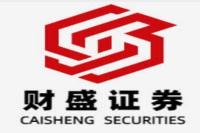Mid-Term Group's Missed Deadlines: A Deep Dive into Corporate Disclosure Failures and Regulatory Actions
Meta Description: Mid-Term Group, corporate disclosure failures, regulatory penalties, China Securities Regulatory Commission (CSRC), information disclosure violations, administrative penalties, legal recourse, investor protection, corporate governance.
This isn't just another dry corporate news piece, folks. This is a behind-the-scenes look at a significant regulatory action that sends shivers down the spines of even the most seasoned financial professionals. We're talking about Mid-Term Group Limited, a company that recently found itself on the wrong side of the law, facing the wrath of the China Securities Regulatory Commission (CSRC). Their transgression? Missing crucial deadlines for crucial reports. This isn't just a simple oversight; it's a glaring example of how critical timely and accurate financial reporting is in the world of finance. Imagine the ripple effect – investors left in the dark, market confidence shaken, and the potential for serious financial losses. We’ll delve into the specifics of their violations, the regulatory response, and the broader implications for corporate governance in China. We’ll also analyze the potential legal ramifications and explore what lessons this case holds for other companies, both large and small. Get ready to unravel the complexities of corporate disclosure, understand the CSRC's regulatory powers, and gain valuable insights into protecting your investments in a dynamic global market. We'll go beyond the surface-level headlines and provide expert analysis, offering a comprehensive understanding of this pivotal case and its wider significance. This isn't just a story; it's a cautionary tale for anyone involved in the financial world. Trust me, you won't want to miss this.
Corporate Disclosure Failures: A Case Study of Mid-Term Group
The recent action taken by the Beijing Regulatory Bureau of the China Securities Regulatory Commission (CSRC) against Mid-Term Group Limited (hereinafter referred to as "Mid-Term Group") and its information disclosure officer, Ms. Mou Shuyun, serves as a stark reminder of the stringent regulations governing corporate disclosure in China. The CSRC's December 20, 2024, announcement detailed serious violations involving the timely filing of mandatory financial reports. Specifically, Mid-Term Group failed to meet the deadlines for both its 2023 annual report and its 2024 interim report. This blatant disregard for regulatory requirements triggered a formal warning letter, a significant administrative penalty that carries considerable weight in the Chinese financial landscape.
The CSRC's decision highlights the importance of adhering to the Company Bond Issuance and Trading Management Measures. These regulations clearly outline the timeframes for submitting annual and semi-annual reports. Mid-Term Group’s failure to comply demonstrates a significant lapse in corporate governance and internal controls, potentially impacting investor confidence and market stability. The fact that the penalty was directed not only at the company itself but also at Ms. Mou Shuyun, the chief information disclosure officer, underlines the personal responsibility associated with ensuring compliance. This signals a clear message: no one is immune to the consequences of neglecting regulatory obligations.
This case is a wake-up call for all publicly traded companies in China. It underscores the importance of establishing robust internal controls, implementing effective monitoring systems, and fostering a culture of compliance within the organization. The penalties imposed aren't just financial; they inflict reputational damage that can be far-reaching and long-lasting. This incident serves as a cautionary tale, emphasizing the need for proactive risk management and rigorous adherence to all relevant regulations.
The Regulatory Response and its Implications
The CSRC's issuance of a warning letter to Mid-Term Group and Ms. Mou Shuyun is not a trivial matter. While it might seem less severe than other potential penalties, such as fines or suspension of trading, it carries significant weight. A warning letter from the CSRC serves as a public record of the regulatory infraction, impacting the company's reputation and potentially affecting its ability to secure future financing. Moreover, it sets a precedent, signaling the CSRC's unwavering commitment to enforcing corporate disclosure regulations.
Furthermore, the CSRC's action showcases the agency's proactive approach to monitoring and enforcing compliance. They didn't just react passively; they actively investigated the reported violations, determined the culpability of both the company and its designated officer, and swiftly took appropriate punitive action. This proactive stance should send a clear message to all companies operating within the Chinese financial system: non-compliance will not be tolerated.
This case also highlights the importance of having a dedicated and competent information disclosure officer. The CSRC's decision to hold Ms. Mou Shuyun accountable underscores the crucial role played by such individuals in ensuring regulatory compliance. Companies must invest in professional development, provide appropriate resources, and establish clear lines of responsibility to ensure that individuals in these roles possess the necessary knowledge and expertise.
Understanding the Legal Recourse Available
Mid-Term Group and Ms. Mou Shuyun are not without recourse. The CSRC's announcement explicitly states that they have the right to appeal the decision. They can file for administrative reconsideration within 60 days of receiving the formal decision. Should this avenue prove unsuccessful, they can further pursue legal action by filing a lawsuit with a court of competent jurisdiction within a six-month timeframe. This legal framework provides a mechanism for challenging the CSRC's decision, ensuring a degree of fairness and due process. However, it's important to note that successfully overturning the CSRC's decision requires presenting compelling evidence of procedural irregularities or significant misinterpretations of the relevant regulations. The burden of proof lies squarely on the appellants. This underscores the importance of meticulous record-keeping and meticulous adherence to regulations from the outset.
Frequently Asked Questions (FAQs)
Here are some frequently asked questions regarding this case and its implications:
Q1: What are the potential long-term consequences for Mid-Term Group?
A1: The long-term consequences could include difficulty securing future financing, decreased investor confidence, reputational damage, and potential difficulties in expanding their business operations. The warning letter will also remain a part of their public record, potentially affecting future dealings with regulatory bodies and other stakeholders.
Q2: What measures could Mid-Term Group have taken to prevent this situation?
A2: Implementing robust internal controls, establishing clear reporting deadlines, investing in compliance training for relevant personnel, and appointing a highly competent information disclosure officer who is well-versed in relevant regulations are key preventative measures. A proactive approach to risk management is crucial.
Q3: How does this case impact investor protection in China?
A3: This case strengthens investor protection by demonstrating the CSRC's commitment to enforcing disclosure regulations. Timely and accurate financial reporting is crucial for informed investment decisions, and the CSRC’s action reinforces the importance of this principle.
Q4: What lessons can other companies learn from this case?
A4: The case highlights the critical need for strict compliance with all reporting deadlines, the importance of competent corporate governance, and the necessity of establishing robust internal controls to prevent similar violations. Proactive risk management and compliance training are essential.
Q5: Can this warning letter affect the company's credit rating?
A5: Yes, it's highly likely. Credit rating agencies consider regulatory actions when assessing a company's creditworthiness. A warning letter from the CSRC could negatively affect Mid-Term Group's credit rating, potentially impacting its ability to secure loans or raise capital in the future.
Q6: What other regulatory actions could the CSRC have taken?
A6: The CSRC could have imposed more severe penalties, such as substantial fines, suspension of trading, or even delisting from the exchange. The choice of a warning letter suggests a consideration of the severity of the violation and the company's overall track record.
Conclusion
The case of Mid-Term Group serves as a potent example of the consequences of neglecting regulatory compliance in the Chinese financial market. The CSRC’s swift and decisive action underscores its commitment to maintaining market integrity and protecting investors. This case isn't just a story about missed deadlines; it’s a powerful lesson in corporate governance, risk management, and the importance of adhering to regulatory requirements. For companies operating in China, this serves as a stark reminder: compliance isn't just a suggestion—it's a necessity. And for investors, it underscores the importance of due diligence and understanding the regulatory landscape before making investment decisions. The future of corporate transparency in China hinges on learning from incidents like this and upholding the highest standards of ethical and regulatory compliance.



